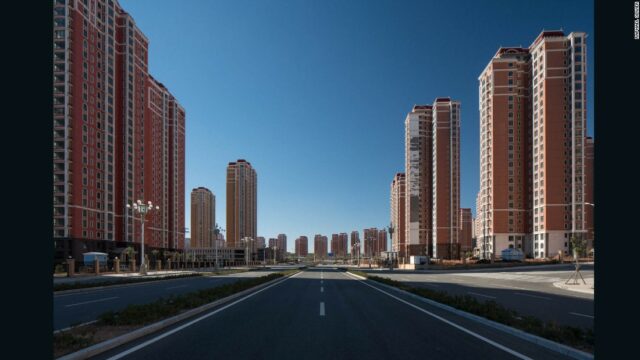These days it is impossible to open social media and not come across phrases like “Lehman Brothers”, “Evergrande crisis”, “Chinese market in crisis”, etc. Anyone from a non-commerce or non-finance background would have a hard time understanding these things if they don’t particularly take interest in financial markets.
But, this time the news is huge and an learned adult should be aware of it. So, here we explain it in very simple words to you so that you don’t miss out.
What Is Evergrande In China?
Evergrande is the second largest privately-owned realty firm in China. One of the biggest property developers in the country, it is highly in debt. How much debt you ask? Currently, it has liabilities close to 300 billion dollars. It is about 2% of China’s entire GDP!
Evergrande was established in 1996 as a bottled water company by Hui Ka Yan. It was then involved in pig farming business for a short time. Currently, it owns China’s top professional soccer team (Guangzhou Football Club) while simultaneously being a major player in the real estate business.
Evergrande is a firm established on borrowed money. It relies on loans from banks, property buyers, and investors. In fact, they collected $6 billion from its own employees, luring them with the prospect of high returns. But, it could not fulfill its promises and could not pay back debt.
In the very immediate, it had to pay $83.5 million as bond-interest payment to its bondholders. The money hasn’t been paid as of Friday afternoon. But, how did the company find itself under such a crushing debt?
How Did Evergrande Find Itself Under So Much Debt?
For years now, the Chinese government has eased up access to cheap debt for realty firms like Evergrande to invest in land and property. Naturally, these companies take advantage of low interest rates to buy property in bulk. Real estate sector accounts for one-third of the country’s GDP.
The rate of property in China has been consistently rising for about 2 decades now. To add to it, property is bought by firms like Evergrande in bulk which creates a scarcity of available land for people, pushing property prices even higher. so much so that it has become nearly impossible for the middle class to buy property.
So, these firms have a lot of property with them which they develop into homes, restaurants, offices, etc. But, the high prices don’t enable interested people to buy these properties. This has resulted in “ghost cities” of China with a lot of developed buildings where very few people actually live.

Now, what happened was that the government ordered a probe into systematically important realty firms to make sure that they are not breaching their debt limits and obligations. In August 2020, the Chinese government brought new rules, called the ‘three red lines’ that define the borrowing limits of these realty firms.
As per the new rules, Evergrande could not borrow any more money from the market. A company that heavily relies on debt for its business is cut off from its money source. Naturally, they did what anyone in this situation would do. They tried to sell a good portion of its assets.
But the property demand is suffering so it had to offer very heavy discounts on its sales. It led to their insolvency. Hence, it received a major financial blow.
Analysts also believe that this crisis definitely had to happen one day owing to the unsustainable business model of Evergrande. The company held up properties which it was not able to sell in the market. It did not declare those as losses.
They even accuse the company of running a Ponzi scheme, since it kept taking funds to invest in a business model that is long dead.
Read More: How Does The Afghan Economy Plan To Survive
Role Of Chinese Government
Chinese government, for a long time, had been biased towards the major real estate players. They have bailed out the troubled developers from their financial hardships in the past and kept supporting the property bubble.
In fact, Evergrande’s executives sought financial assistance from the Chinese government last year. They agreed that they were not able to meet their debt obligations to banks.
What changed now is that the government wants to support other sectors such as technology. It also wants to take action against income inequality in the country, trying to minimize the divide between the rich and poor. The recent rules in the property sector are clear evidence of the same.
Is This Crisis China’s Own Lehman Moment?
Many in the field have called his crisis China’s Lehman moment. For those of you who are not aware, it was an investment bank based in the USA which declared bankruptcy in 2008 and was a major factor in the Global Financial Crisis of 2008. There was a public outcry when the bank admitted to its crushing debt.

But, is Evergrande’s crisis actually as bad as the Lehman Brothers crisis? Well, yes and no. Let’s analyze. Given the size and systemic importance of Evergrande, it can badly affect other sectors in the economy, directly and indirectly.
Lenders who lent money to Evergrande are waiting on their payments. Homebuyers are expecting to get ownership of their property soon. It is also believed that the company may have even more than $300 billion debt to repay that is not reflected in the balance sheet.
Now, analysts believe that the government will actually step in and bring the company out of its financial woes to prevent the whole property sector from crumbling. But, even it is going to have negative implications.
To bail the firm out of such heavy debts, a lot of new money would have to be minted which will increase the money supply in the economy thus depreciating the value of Chinese currency.
It will have an impact on the foreign markets also. The foreign players who have directly invested money in the property sector would be seeing losses. And while the Chinese would focus to bring the property sector out of stress, it would affect the demand/supply in other fields.
For example, the metal stocks in India which had been riding high for a while have seen correction in their prices and the reason is attributed to the fear of a decrease in metal demand in China.
But S&P Global Ratings believe that this would not cause a significant disruption. They said, “Evergrande is small relative to Chinese banks’ total loans. The banking sector’s direct exposure to Evergrande also appears well distributed.”
Moreover, it would be far stretched to call it a Lehman moment because Lehman was an important part of the American banking system. It held financial assets. Evergrande, on the other hand, holds lands. So, it cannot really bring the world into recession.
There has been no major blow to the Indian market because of this yet. The international markets have also not reacted very strongly to this.
Most analysts think that it certainly cannot be compared to the 2008 Lehman Brothers moment and while it would have serious repercussions in China, the rest of the world would be not as severely affected by it.
Sources: The Hindu, Indian Express, CNBC
Image Sources: Google Images
Find The Blogger: @TinaGarg18
This post is tagged under: lehman brothers, lehman brothers crisis, global financial crisis 2008, evergrande, realty firm china, evergrande in china, real estate sector, property, rising property prices, ghost cities of china, china’s lehman moment, china’s lehman brothers moment, recession, economy, finance, debt, markets falling, metal sector, lenders, banks, loans, crushing debt
Other Recommendations:
Did Someone Just Play The Market To Take Over Control Of ZEEL?

































